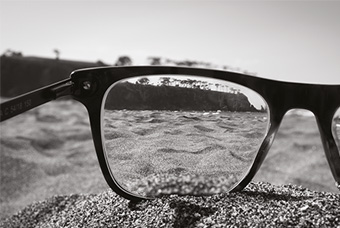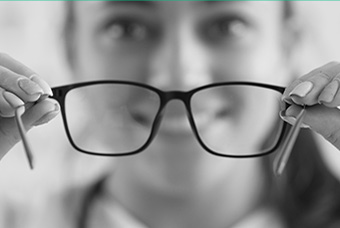
It’s not always easy to know when you need glasses.
Focusing glasses are necessary when you are having problems reading fine print or street signs, or when you have difficulty with night vision. Take care of your eyes and don’t let your eyes get unnecessarily tired.
The most common vision problems and eye conditions that will make you feel you need glasses (or a change to your current eyeglass prescription) include:
Nearsightedness
Nearsightedness (myopia), which makes it difficult to see distant objects clearly. Myopias usually are able to see well for close-up tasks. Children can develop myopia too when they are between 8 and 12 years old, especially nowadays with the increase use of digital devices.
Farsightedness
Farsightedness (hyperopia), a condition where focusing on up-close objects or tasks is challenging, but distance vision is normal.
Presbyopia
Presbyopia, defined as the normal loss of near focusing ability that happens to just about everyone, sometime after age 40.
Other signs and symptoms that may indicate you need glasses include needing brighter light to see or read clearly, seeing halos around light sources (like car headlights and light bulbs), Not being able to see clearly while reading and distorted or double vision.
Vision changes can be sneaky. They just show up one day as blurry sight, problems reading fine print or street signs, or difficulty with night vision.
Ask your optician to help you choose the lenses that suit your vision, lifestyle and taste.
Almost anyone with a vision problem can wear these lenses, but they’re typically needed by people over age 40 who have presbyopia (farsightedness) — their vision blurs when they’re doing closeup work like reading or sewing. Progressive lenses can be used for children too, to prevent increasing myopia (nearsightedness).
You need progressive glasses if you are both farsighted and shortsighted. This occurs most often with persons who have passed the age of 40. Do you notice that you can no longer see clearly at a distance and at the same time also have trouble reading fine print (close by)?
If you have both symptoms, possibly accompanied by fatigue and headaches, you may need multifocal glasses. Choose the progressive glasses that suits you the best!
Anti-reflective is a coating that repels grease, dust and water. It is therefore much more durable, because you don’t have to wipe your lenses as often. This allows you to enjoy your lenses longer.
Even more advantages to why to choose lenses with anti-reflection
- Protects against UV rays
- Protects against artificial light
- Better viewing comfort
- Longer lifespan
- Cosmetically more beautiful lenses
With a number of simple tips you can protect your eyes well against the various rays of light. Choose from our anti-reflective, photochromic or tinted lens options.
Anti-reflection is an extra treatment for your lenses, which ensures that all annoying reflections are removed. It gives the spectacle wearer a much sharper vision and makes your glasses much nicer for the people around you.

Maintenance
Cleaning your eyeglasses daily is the best way to keep them looking great and avoid scratched lenses.

Advice
Useful tips! Enjoy your glasses longer and therefore pay attention to the following tips:

Product tips
Keep an eye on our tips. This month’s tip! Never leave your glasses in a car that is too hot…
